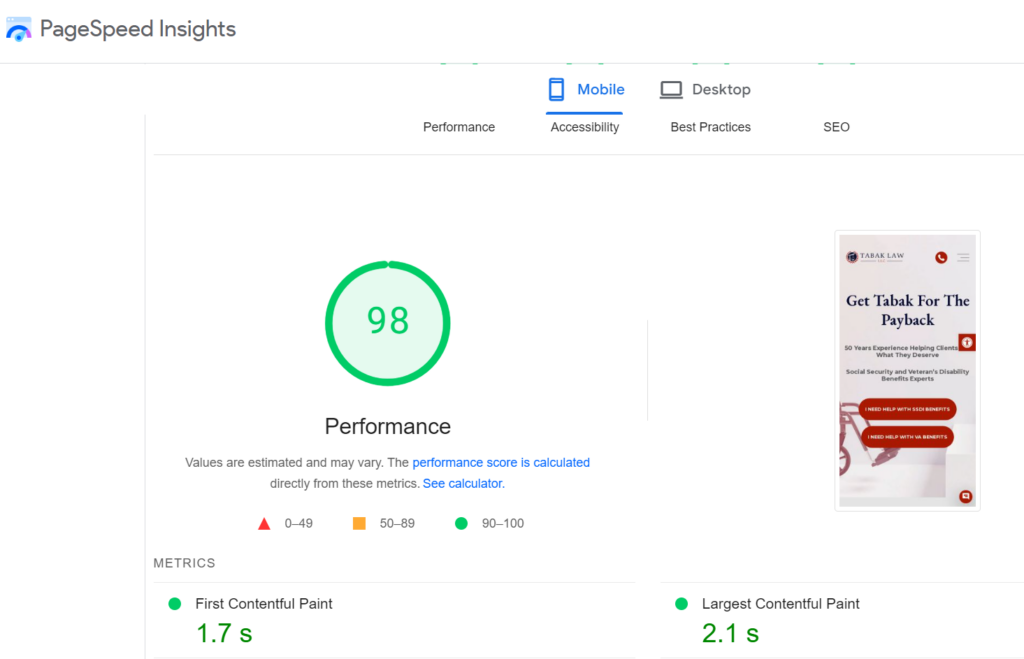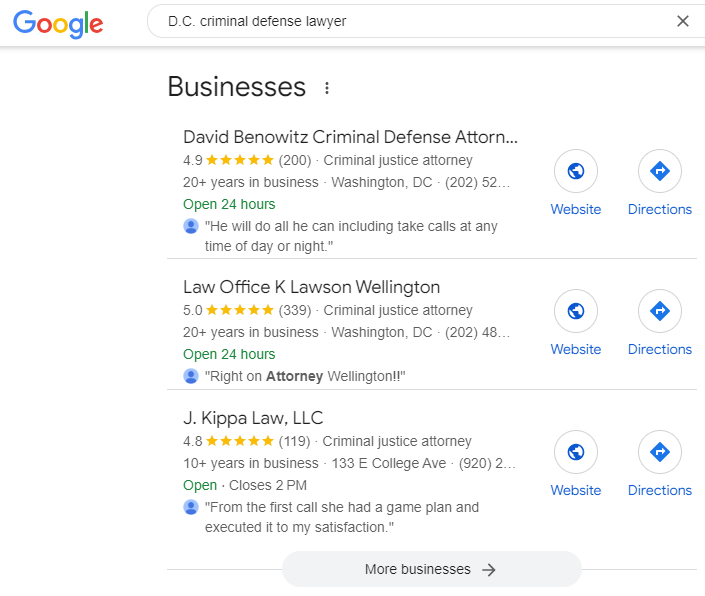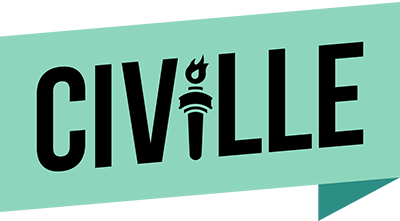
As the nation’s capital and hub for legal activity, Washington D.C. is home to an abundance of law firms competing for the top results in organic search rankings. To compete in this competitive legal landscape, it is essential to have a strong online presence and optimize for SEO.
If you’re a smaller firm in Washington D.C., you might wonder, “How can I compete with the larger firms in the area?” The answer may be simpler than you think. The key to ranking for organic search is having a solid SEO strategy.
In this blog, we are going to do a deep dive into why SEO is so important for law firms in Washington D.C., and some strategies you can use to start ranking higher in search results.
SEO Competition in Washington D.C.: How to Compete?
As we mentioned before, Washington D.C. is a highly competitive landscape when it comes to law firms fighting to be on the top of search results. It may seem intimidating to even try to start trying to compete with the top law firms in the area, but by implementing a strong SEO strategy, your law firm has the potential to stand out.
Here are a few ways you can start improving your online ranking and compete effectively:
- Optimize for Local SEO: Incorporate location-specific keywords in your website content, meta descriptions, and titles. For example, a “criminal defense lawyer in Washington D.C.” can help target clients searching specifically for services in your area.
- Focus on High-Quality Content: Develop blog posts, articles, and guides that address common legal questions and issues faced by residents in Washington D.C. High-quality, informative content not only helps with SEO but also establishes your firm as an authority in your practice area.
- Build Local Backlinks: Partner with local legal organizations, participate in community events or contribute articles to local publications to earn backlinks from reputable local sources. These backlinks can enhance your site’s authority and improve your search rankings.
- Enhance Your Website’s User Experience: With many users accessing websites via mobile devices, having a responsive and mobile-friendly website is crucial. Additionally, fast-loading pages enhance user experience and contribute to higher search engine rankings.
These strategies are simple ways to start ranking higher on search results and reach more clients.
Technical SEO: Building a Strong Foundation
Something you may overlook when optimizing your online presence is looking at the technical ways you can incorporate SEO. Technical SEO involves optimizing your website’s backend structure and coding to ensure search engines can crawl, index, and understand your content effectively. Here are some technical SEO components to take into consideration:
1. Website Structure and Navigation
- Clear URL Structure: Ensure URLs are clean, descriptive, and include relevant keywords. Avoid long or complex URLs.
- Breadcrumbs: Implement breadcrumb navigation to help users and search engines understand the site structure and improve internal linking.
2. Mobile Optimization
- Responsive Design: Ensure your website is fully responsive and provides an optimal experience on all devices, including smartphones and tablets.
- Mobile Usability: Use Google’s Mobile-Friendly Test tool to check for mobile usability issues and make necessary adjustments.
3. Site Speed and Performance
- Page Load Speed: Optimize images, leverage browser caching, and use content delivery networks (CDNs) to improve page load times. Tools like Google PageSpeed Insights can help identify areas for improvement. A fast-loading website is essential for an enjoyable user experience.
- Minimize HTTP Requests: Reduce the number of requests by combining files and minimizing scripts and CSS.
4. On-Page SEO Elements
- Meta Tags: Optimize title tags and meta descriptions with relevant keywords and local terms. Ensure each page has unique and descriptive meta tags.
- Header Tags: Use header tags (H1, H2, H3) to structure content hierarchically and incorporate target keywords.
5. XML Sitemap and Robots.txt
- XML Sitemap: Create and submit an XML sitemap to Google Search Console and Bing Webmaster Tools to help search engines crawl and index your site more efficiently.
- Robots.txt: Ensure your robots.txt file is configured correctly to guide search engine crawlers and prevent indexing of unnecessary pages.
Civilles Technical SEO Approach: Laying down a solid foundation is key. Your website’s backend is just as important for ranking in search engines as the visible components. At Civille, we understand that a law firm’s website is the cornerstone of all other digital marketing efforts. That’s why we’ve created a top-tier SEO platform with exceptional page speed scores, as verified by Google’s PageSpeed Insights, and comprehensive schema markup along with high-quality original content. With this solid foundation in place, we can then build and execute the ongoing strategy to drive your firm’s success
Designing for SEO: Crafting a Website that Ranks and Converts
When designing a website, it’s crucial to blend aesthetics with functionality to ensure both high search engine rankings and an exceptional user experience. A well-crafted site not only attracts visitors but also converts them into clients. Here are some ways you can design your website for SEO:
1. Enhancing User Experience (UX)
- Intuitive Navigation: Create a user-friendly site with clear menus and straightforward pathways to key information. This helps visitors find what they need quickly and can reduce bounce rates.
- Mobile Optimization: Design a responsive website that performs well on mobile devices, as Google’s ranking algorithms prioritize mobile-friendly sites.
- Fast Loading Times: Optimize page speed by compressing images and leveraging caching to improve user experience and potentially boost search rankings.
- Clear and Accessible Content: Use simple, jargon-free language to ensure content is easily understood by all visitors.
2. Visual Appeal
- Professional Design: Ensure a clean, attractive design that conveys credibility and fosters trust with potential clients.
- High-Quality Visuals: Use relevant, optimized images and graphics to enhance engagement and support your content.
- Consistent Branding: Apply consistent branding elements, such as color schemes and fonts, to reinforce your firm’s identity across the site.
3. Accessibility Features
- Follow Accessibility Guidelines: Implement features that comply with WCAG standards to make your site accessible to users with disabilities.
- Descriptive Alt Text: Include alt text for all images to improve accessibility and provide context for search engines.
- Keyboard Navigation: Ensure your site is fully navigable using a keyboard to accommodate users with disabilities.
Civilles Design Approach for SEO: Civille knows that a beautiful website must also deliver a seamless user experience and strong search engine performance. Our team collaborates with yours to create a website that is not only visually appealing but also optimized for SEO. We conduct thorough user experience (UX) research, design an intuitive site structure, and ensure quick loading times. Even if your business thrives on referrals, potential clients will still look you up online. Let’s make sure their first impression inspires confidence and drives them to take the next step with you.
Page Speed and Why it Matters for SEO
Ever landed on a website that was taking too long to load? Most people won’t wait more than a couple of seconds for a page to load and move on to the next website. A fast-loading website not only provides users with a more enjoyable experience on your website, but it also is a ranking factor for Google. Here are a few ways you can improve your website’s page speed:
1. Optimize Images and Media
- Compress Images: Use tools like TinyPNG or ImageOptim to reduce file sizes without losing quality. Use formats like WebP for faster loading.
- Lazy Loading: Load images and videos only when they appear on the screen to speed up the initial page load.
2. Reduce HTTP Requests
- Combine Files: Merge CSS, JavaScript, and HTML files to reduce server requests.
- Use Asynchronous Loading: Load non-essential CSS and JavaScript files asynchronously so they don’t block the page from loading.
3. Enable Browser Caching
- Set Cache Rules: Allow browsers to store static files (like images, CSS, and JavaScript) for faster loading on return visits.
- Use a Content Delivery Network (CDN): Serve content from servers closer to Washington D.C. for quicker delivery.
4. Regularly Test and Monitor Your Page Speed
- Use Speed Tools: Use tools like Google PageSpeed Insights or GTmetrix to check your website speed and identify areas for improvement.
- Fix Issues Quickly: Resolve any speed issues identified by these tools to keep your site fast.

Civilles Approach to Page Speed: At Civille, page speed is one of the factors we prioritize the most when it comes to designing websites. We pride ourselves on creating websites that have amazing page speed scores. You can check the page speed of your website using the Google Pagespeed Insights tool. While you’re at it, check out the page speed of some of our websites to see just how fast they are.
Unique SEO Opportunities for Law Firms in Washington D.C.
In a competitive legal market like Washington D.C., standing out online is essential for law firms looking to attract new clients. With a unique blend of local, federal, and international legal matters, D.C. offers specific opportunities for you to distinguish yourself as a leader in your given area. Here are some unique SEO opportunities for law firms in Washington D.C. to consider.

1. Leverage Local Keywords Related to D.C.
- Target D.C.-Specific Keywords: Use keywords that reflect local terms and phrases, such as “D.C. criminal defense lawyer” or “family attorney near Capitol Hill.” This can help attract clients specifically looking for legal services in Washington D.C.
- Focus on Neighborhood and Landmark Keywords: Include areas like Georgetown, Dupont Circle, or Foggy Bottom in your content to capture hyper-local traffic. Mention well-known D.C. landmarks, government buildings, or locations relevant to potential clients.
2. Optimize for Government and Regulatory Content
- Create Content About Federal and Local Regulations: Since Washington D.C. is home to many federal institutions, law firms can create content that explains how federal laws or D.C.-specific regulations impact legal cases. Topics could include federal employment law, government contracting, or regulatory compliance.
- Develop Guides for Interacting with D.C.-Based Agencies: Write guides on dealing with local government entities, like D.C. Courts, the U.S. Patent Office, or the Federal Trade Commission. Providing practical advice can attract local businesses and individuals needing legal assistance.
4. Build Connections with Local Organizations and Media
- Get Involved with Local Bar Associations: Engage with organizations like the District of Columbia Bar. Participate in events, offer legal insights, or provide guest blog posts. These activities can lead to backlinks and increased credibility in local searches.
- Collaborate with Local Media: Reach out to local news outlets, legal publications, or community blogs for guest posting, interviews, or press mentions. Being featured in D.C.-specific media can boost local SEO and establish authority.
4. Capitalize on D.C.’s Legal Landscape
- Highlight Specialization in High-Demand Legal Areas: Focus on legal services that are especially relevant in D.C., such as political law, immigration, or public interest law. Create content that showcases your expertise in these areas.
- Showcase Federal Litigation Experience: Emphasize experience with federal cases or courts, like the U.S. District Court for D.C. This can appeal to clients needing representation in federal matters.
Crafting an SEO Strategy that Works for Your Washington D.C. Law Firm
SEO is a crucial element of a successful marketing strategy for law firms in Washington D.C. Implementing best practices in technical SEO, optimizing for mobile and local searches, and creating content that resonates with the D.C. community will help you attract and give potential clients confidence that you have the ability to handle their case.
It is important to note that SEO takes time and demands continuous effort to start seeing results. Keeping up with and updating your strategy will help your law firm maintain a strong presence in the competitive D.C. market and position it as a trusted authority in your practice area.





